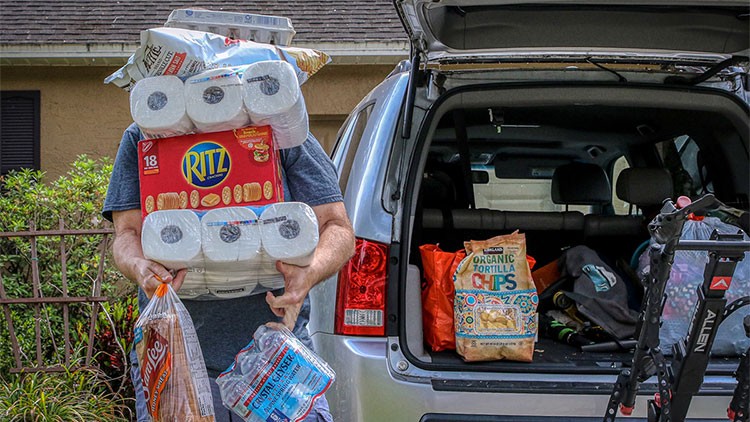
Key Points:
- The meaning of “prepper” is someone preparing for societal collapse, natural disasters, or any other type of large-scale event that would disrupt life as we know it.
- The founding fathers of survivalism include Don Stephens, Howard Ruff, Mel Tappan, Ragnar Benson, and Kurt Saxon.
- Despite some bad actors calling themselves preppers, or the media labeling them as such, most preppers are entirely reasonable and rationale.
- There are different types of preppers: Bushcrafters, Survivalists, Homesteaders, Tactical Preppers, Doomsday Preppers, and many others.
The answer to “What is a prepper?” in its most basic form is “one who prepares.” If you’re here reading this post, however, I doubt that answer will satisfy. As it should not, because there is a whole world onto prepping and preppers. It is as deep as it is diverse.
Consequently, the definition of prepper has evolved over time. Prepper has a different meaning to different people. A better definition of a prepper is someone preparing for societal collapse, natural disasters, or any other type of large-scale event that would disrupt life as we know it. Preppers tend to stockpile supplies, learn primitive skills, etc.
So, if you want a complete explanation or definition, you’ll have to read on. But first…
Who Am I to Write On Preppers?

I am not going to call myself an expert on preppers or prepping. That’s in part a reluctance to call myself an expert on anything. I call myself a prepper, but am I qualified to speak on behalf of preppers as a whole?
I don’t know, but I do have some qualifications. For starters, I founded SHTF blog in 2007 (What is SHTF?). This was before prepping was as commonplace as it is today. It was at a time when people were still reluctant to identify – even to themselves – as a prepper. Hell, most people hadn’t even heard the word before, let alone used it in conversation. Prepping was fringe, sketchy, and weird. If you did it – you were very quiet about it. Even I blogged under a pen name at the time – Ranger Man.
So, I’ve been at this prepper thing for well over a decade (in reality, even before the blog). Through my time with SHTF blog, and since founding Prepper Press, I have obtained an in-depth understanding of preppers and prepping. I have watched it evolve over time. I have seen interest in it ebb and flow.
I have spoken to many preppers, people owning businesses serving preppers, reporters, toured famous bunkers, fielded many reader questions, etc. So, while I won’t call myself an expert, I will say I do know a thing or two about prepping and about preppers.
Prepper – the Basic Definition
If we look at the Oxford Dictionary definition of prepper, we get a simplistic answer:
A person who believes a catastrophic disaster or emergency is likely to occur in the future and makes active preparations for it, typically by stockpiling food, ammunition, and other supplies.
https://www.lexico.com/en/definition/prepper
A look at Urban Dictionary gives us something similar:
A person who is prepared, or striving to be prepared for incident, natural disaster, etc. A person actively preparing or being prepared for situations that may affect the stability of home, life, or financial situation. Also known as survivalists, doomsday preppers.
https://www.urbandictionary.com/define.php?term=Prepper
These definitions aren’t going to do much for our purposes, however. We want to go deep, deep like a bunker.
Beginning with the End
It is often said that people have been preparing for the end of time since the beginning of time. One need only look at the many myths and religious traditions rooted in the end of the world. The most commonly known is, of course, the Book of Revelations. But that’s just Christianity. The Quran also speaks of signs in the heavens of when the world will end. Hinduism foretells the final incarnation of Vishnu. The Assyrians are reported to have written about end days as far back as 2800 B.C. Mayans spoke of it, Nostradamus, and on and on.
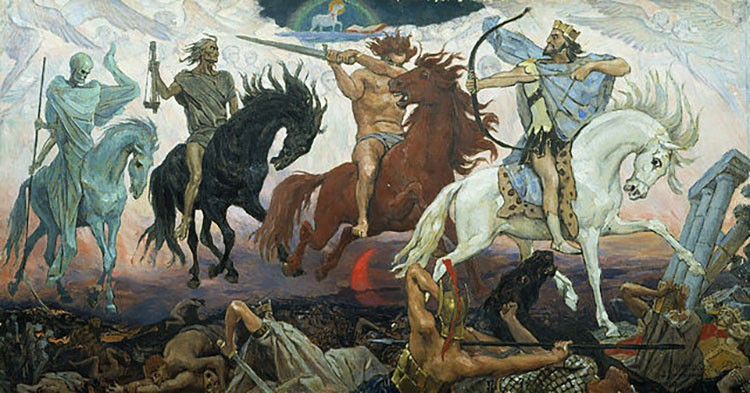
Fascination with the end of the world, and fear of it, has always been and forever will be. With modern media, that fascination moved into books and movies. Mary Shelley wrote The Last Man in 1826, a futuristic novel about post-apocalyptic life in a lonely world. The book was one of the first books on the apocalypse. Novels of this type went on to include a whole list of post-apocalyptic novels and movies.
Starting with the beginning of mankind’s time is unnecessary, however. Let’s start somewhere around… fifty years ago.
1970s Back to the Land Movement
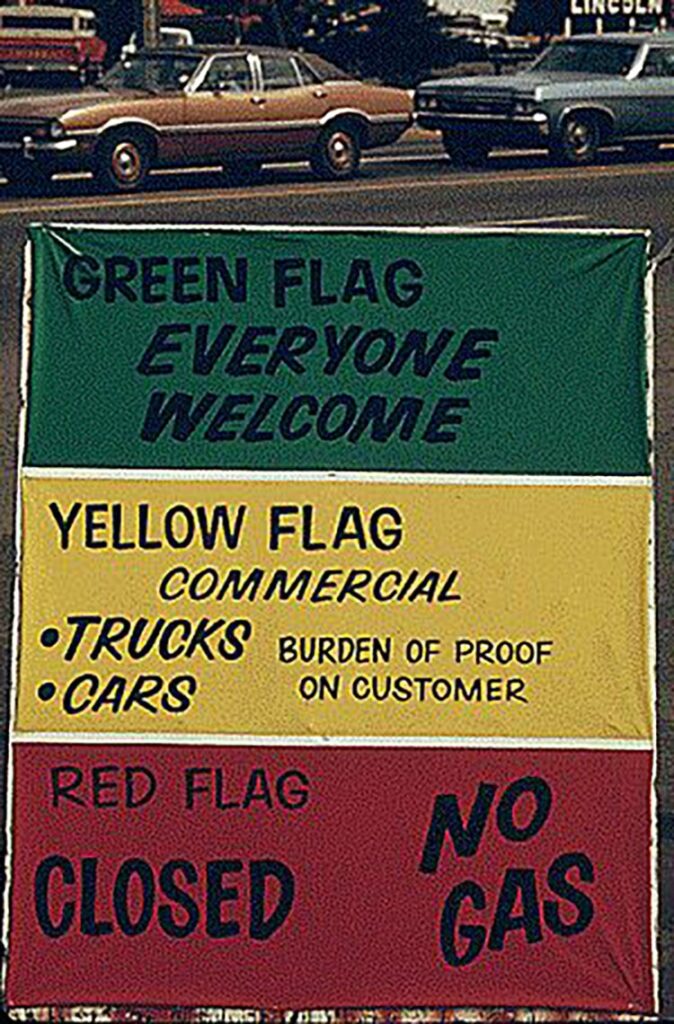
The 1970s was a period of significant growth for what would be considered prepping by today’s standards. Fresh off the civil unrest of the 1960s, the Vietnam War, and facing the new perceived threats prompted by the oil embargo and fears of environmental catastrophe, many pursued a “back to the land” movement, which is the equivalent to today’s “off the grid” lifestyle focusing on simplicity and self-reliance. Various books and magazines followed suit:
- Mother Earth News was launched (1970)
- The very popular Foxfire Books began (1972)
- Robert Preston’s How to Prepare for the Coming Crash (1972)
- Making the Best of Basics (1974)
- The Self-Sufficient Life and How to Live It (1976)
- and many others.
All of this was, of course, on top of a background of the imminent threat of all-out nuclear war with the Soviet Union.
Founding Fathers of Survivalism
In order to understand today’s prepper, we need to first step back to get a picture of who helped initiate the survivalist movement. Following are just a few of the key individuals.
Don Stephens (… – 2018)
One of the first phrases used to describe a prepper could be the retreater. Don Stephens, in his book from 1968 called Retreater’s Bibliography, used the phrase to describe the people who were making plans for what we today call bugging out. These retreaters were getting ready for a collapse in the monetary system that would consequently lead to a societal collapse. Stephens’ book was a guide of sorts to help these retreaters prepare, offering advice on how to live away from others, use solar power, using natural building techniques, and advice on general self-reliance and off-grid living.
Stephens would go on to write other books, including Personal Protection, Here and Now, Retreating on a Shoe-string, and The Complete Survival Guide.
Howard Ruff (1930 – 2016)

Howard Ruff is also considered to be one of the core founders of survivalism. He was a financial adviser who believed that the United States was headed for another Great Depression following the 1973 oil crisis, and he advised investors to put their money into gold, silver, and other hard assets. He was also a writer, penning Famine and Survival in America (1974), How to Prosper During the Coming Bad Years (1978), Survive and Win in the Inflationary Eighties (1981), and similar titles.
Mel Tappan (1933 – 1980)
Mel Tappan began his foray into survivalism as many people do – through an interest in firearms. From there, he made contact with Don Stephens and began presenting at lectures with him. He wrote a monthly column for Guns and Ammo magazine titled Survival Notes. His 1977 book Survival Guns (still sold today) solidified his presence in the survival sphere and established him as a leading expert on all things survival.
Mel Tappan’s oft-cited quote:
The concept most fundamental to long term disaster preparedness, in retreating, is having a safe place to go to avoid the concentrated violence destined to erupt in the cities. When you have a growing apprehensive awareness that the time grows short for you to relocate away from areas of greatest danger, then choose [where you will live] carefully.
His quote embodies the “bug out” approach many preppers adopt as part of their personal preparedness plans.
Ragnar Benson
Nobody knows exactly who Ragnar Benson is other than it’s the pen name of a prolific survivalist writer. His books were best-sellers to anyone having an interest in personal preparedness. He was a controversial figure because many of books pushed the limits of legality. He wrote on survival retreats, poaching animals, creating false identification, firearms, explosives, improvised weapons – you get the idea. His total inventory of titles is upward of fifty different books written under his name.
Benson even penned the Foreword to one of our very own books, Long-Term Survival in the Coming Dark Age. That Foreword could be the last published words Benson ever wrote.
Kurt Saxon (1932 – …)

Kurt Saxon is actually the person claiming to have coined the term survivalist to refer to people preparing for societal collapse. He began publishing a monthly newsletter called The Survivor in the 70s. The newsletter contained reprints of 19th century and early 20th century writings on pioneer life, skills, and early technology that could be used without modern life dependencies.
Dismayed with modern life, Saxon referred to contemporary society as “Disneyland for dummies.”
Retreater versus Survivalist
Retreater and survivalist were used interchangeably for a long time, but the two terms eventually took on different meanings. Retreater began to mean someone who was doing just that – retreating from danger. For many, this was seen as weak or cowardice. Survivalist, on the other hand, had a stronger ring to it, describing one who was prepared to take aggressive action.
Saxon carved a distinct line between the two terms in his 1980 piece What is a Survivalist?, stating
My term has been catching on and now those offended by “retreater” are quite satisfied to call themselves Survivalists and move out. It has turned out to be a word anyone can accept as a label if they want one.
My definition of a Survivalist is a self-reliant person who trusts himself and his abilities more than he trusts the Establishment. Insofar as the Establishment is deteriorating, the Survivalist prepares to leave it.
Retreater began to lose steam and eventually fell out of prepper lexicon altogether, giving way for survivalist to become the word of choice for much of the 80s and 90s.
Survivalist versus Prepper
Over time, as retreater transitioned to survivalist, survivalist seemed to transition more toward prepper. There is no distinct moment that this happened. For that matter, many still uses the terms interchangeably. Still, from my perspective, survivalist has come to mean more of a hard prepper. Prepper is more… friendly sounding and is now used more widely.
Where prepper could be seen as more mainstream, survivalist now seems to be used to describe the fringe elements of society, extremists who are exceptionally distrustful of government (think Ted Kaczynski). There is an exception to this observation – the wilderness survivalist (more on that in a bit).
Evolution of The Modern Prepper
Following are my observations on the evolution of prepper, both as a term and as a movement, because what was once a largely simple lifestyle of self-reliance has morphed into more modern survival strategies. I’ve witnessed various important events that have shaped today’s prepper. Let’s start with the big event of my childhood…
The Cold War
I grew up in the 80s, a period of neon clothes, hair bands, and the end of the Cold War. It wasn’t quite the period of the Cuban Missile Crisis, but I can still recall the fear of nuclear war, the supposed nuclear winter that would follow, and imagining what life would be like after a nuclear apocalypse.
The threat was real, so real the government, whether they called it prepping or not, advocated for it in some of the same ways they do today, calling for people to build rooms in their basements to shield against radiation, identifying fallout shelters, and distributing designs for backyard bunkers. FEMA itself was created in 1979 by President Jimmy Carter via Executive Order 12148. On top of intentional nuclear war, we also witnessed, at least from afar, the fallout from the Chernobyl accident in 1986.
Y2K
As the 1990s came to a close, a new fear emerged – Y2K. This was known as the “Millennium Bug,” a computer glitch that would cause computers, on midnight January 1, 2000, to automatically think it’s January 1, 1900. The fear was that this “glitch” would wreak havoc on the nation. Energy plants would shut down, banking industries would go haywire, etc. Nothing happened, of course. Perhaps it was the many efforts to address the problems beforehand, perhaps it was much ado about nothing.
September 11th, 2001
Post-Y2k, we all laughed at ourselves. So much preparedness over a non-event. It brought new people into the prepping fold, yes, but were they going to stay after buying a bunch of freeze dried foods for nothing? Of course, those foods are still good to this day, but the idea of prepping became laughable again.
Then, on 9/11/01, Islamic terrorists hijacked planes and… well, we know the rest of the story. What happened for prepping, however, is that suddenly Americans felt vulnerable. Terrorist attacks on ships overseas, that’s one thing, but here, on our own soil!? As the nation moved ready for war, people began to wonder what else could happen. Prepping, all of a sudden, didn’t seem so ridiculous.
Hurricane Katrina
Hurricane Katrina (August 29, 2005) was – prior to COVID-19 – the single biggest event to breathe life into the prepper movement that I have observed in my lifetime. There is the obvious reason – a major storm wreaked such havoc. Rain fell, winds blew, flood waters rose, and every scurried to find safety.
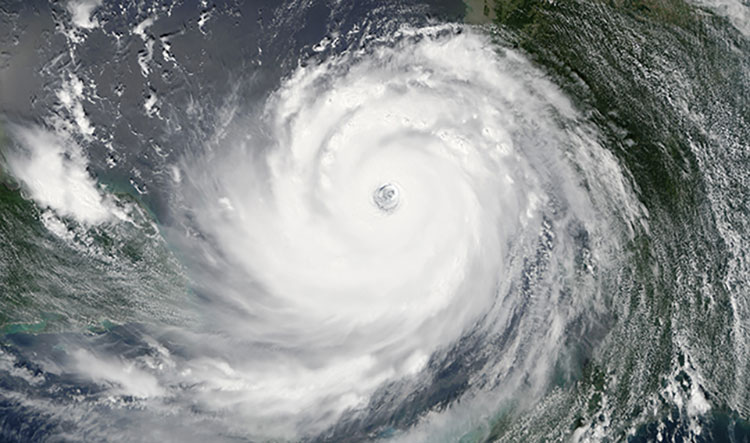
But there were other events resulting from Katrina that gave weight to the value of prepping, specifically:
- The government’s disastrous response, leading many to realize that in times of crisis, they truly can’t rely on government to help them.
- The lawlessness that ensued – looting, wealthy neighborhoods hiring private security firms, etc.
- Civilian gun seizures by police.
It was after Katrina that new prepper sites began taking shape all over the internet. Whether it was Katrina itself, or Katrina on top of all types of other events, I’m not sure. But after Katrina, personal preparedness was no longer a fringe idea.
The Great Recession
Predictions of a major economic collapse have been on the table ever since the Great Depression. From 2007 until June 2009, America faced the next closest thing – the Great Recession. The move into prepping at the time was palpable. The people warning others of economic collapse had their moment. They were right, and people were wondering, “How bad can this get?” Financial security, the ability to grow your own food, these basics came back into focus for many, and gave renewed life to the prepper movement.
COVID-19
Just when interest in preparedness was beginning to undergo its periodic waning phase, the Coronavirus COVID-19 came out of Wuhan, Hubei, China and brought the world to its knees. Preppers, for their part, were not surprised. Warnings had long been issued by epidemiologists that a pandemic was only a matter of time. Many preppers included preparing for a pandemic as one of the many reasons to justify personal preparedness.

No one knew how bad the pandemic would get. As many preppers had warned, there was a run on grocery stores. Toilet paper, hand sanitizer, pasta, flour, and many other staples flew off the shelves and became difficult to buy. Airlines came to a standstill. Borders were closed. Stay-at-home orders were put into place. No one knew what to expect. Everyone wished they had prepared in advance.
The New York Times reported that Now Everyone’s a Prepper. The Atlantic wrote We Should All Be Preppers. Market Watch wrote:
America’s ‘survivalists’ feel vindication as they lock down for coronavirus epidemic – with ‘beans, bullets and Band-Aids’
https://www.marketwatch.com/story/how-americas-extreme-survivalists-are-preparing-for-a-worst-case-coronavirus-epidemic-beans-bullets-and-band-aids-2020-03-02
The National Review also wrote a piece, saying:
But hey, it’s 2020. At this point, we’ve faced a mysterious mutant virus, government-sponsored lockdowns, an invading swarm of murder hornets, and violent unrest across America. Who knows what’s coming next? An alien invasion? Cats 2? I hate to break it to you, but if you’re here with us in 2020 and you’re paying attention and you’re not prepping, you’re the weird one now.
News outlets were going wild over preppers, many “leaders” in the prepping market were interviewed, myself included. Prepping, already on its way to becoming mainstream, was now solidified as a “normal” activity.
Are Preppers Crazy?
In December 2012, the word prepper came into full press after the mass shooting at Sandy Hook elementary school. The mother of the shooter was described as a “prepper” who was concerned about economic collapse. Tensions around the shooting – and the potential gun control measures that might flow from it – were high. Preppers were in focus as fringe extremists.
Foreign Policy reported at the time that…
While there’s not much solid research to be had, anecdotal observations certainly give the impression that there’s a higher incidence of mental illness among hardcore preppers than in the general population, and the nature of their beliefs and social networks may create obstacles to diagnosis and treatment.
This “mental illness” belief was underscored for many by National Geographic Channel’s wildly popular Doomsday Preppers show. This “reality” show followed people preparing for everything from an economic collapse to an electromagnetic pulse. For ratings’ purposes, the show accentuated the fringe, laughable, extremist sides of those featured on the show. For any sensible person sitting at home watching, preppers did indeed look like a term describing a bunch of crazies with irrational fears and out of touch with reality.
Meanwhile, overseas, and more recently, German Neo-Nazis were coming under scrutiny, and the ways they were preparing for catastrophe seemed to have a common thread with preppers. These Neo-Nazis were now being described as just that – preppers and survivalists:
- Harmless Stockpilers or Neo-Nazi Survivalists?
- Germany to surveil far-right doomsday ‘prepper scene’
- German group with far-right ‘prepper’ links trains civilians for combat
The media, from the early days of survivalism in the 1970s to today, have long portrayed preppers in a poor light. For this reason, a group already skeptical of mainstream media has become even more distrustful. Speaking from personal experience with various reporters, even reporters now seem to understand this, that – collectively – their reputation among preppers is poor, and justifiably so.
So, no, preppers are not crazy. In fact, they’re quite sane.
Different Types of Preppers
The different events over the years bringing new people into prepping has resulted in disparate groups of preppers. While they may all have the same end goal – personal preparedness – what brings them to prepping, the reasons they prep, is often what distinguishes them; and, because of the negative connotations, some want to be affiliated with a certain subset, so it’s known they’re not that type of prepper.
Alternatively, people could be brought to prepping for the same reasons but focus their preparedness on specific areas. This could be because of their specific needs (suburban preppers, as an example), or because of personal interests (tactical preppers, as an example). Regardless, what follows is a sampling of different types of preppers.
Bushcrafters / Survivalists
You may note the inclusion/re-emergence of survivalist here. That’s for good reason, because – at least from my observations – the definition of a survivalist is changing. The term is being used how I would describe bushcrafters, or if I was to the word survivalist, prefaced with wilderness survivalist. Not necessarily stockpiling guns and ammo, or having a cache of toilet paper, these preppers are more interested in knowing how to survive in the wild.
They are overwhelming the most skills-based type of prepper. Their primary objective is to learn to live – to survive – in the wild, with little or nothing. Consequently, there is little or nothing for them to buy short of a decent knife and axe. Rather than buy a high-end survival lighter, they want to know how to start fire with a bow drill. Rather than buy a bug-out cabin, they want to know how to make a survival shelter out of brush and forest debris.
Homesteaders
Homesteaders here is used to describe people operating their home like a small, personal farm. This may/may not include living off the grid, but it’s certain to include efforts toward self-sufficiency. They keep and maintain personal gardens, the turn compost piles, they conduct home canning to preserve foods, and they know animal husbandry, if only for chickens. They recognize the importance of water and look for property near natural water or they build elaborate rainwater collection systems. These preppers are focused on building skills toward self-reliance, learning carpentry, for example.
Tactical Preppers
This group – from my observations – represents perhaps the largest group of preppers. Consequently, they are also probably the group that many people stereotype as the typical prepper. As the name suggests, their interest lies with all things tactical – or, when being made fun of or making fun of themselves – tacticool.
Like Mel Tappan, these preppers come to prepping as a natural extension of their interest in firearms and personal defense. They enjoy going to the shooting range, buying the latest high-end firearm and associated accessories, researching what flashlight will give them the most lumen-to-battery ratios, etc. What I would describe as practical prepping is secondary to this group. Firearms come first, food and water second.
Doomsday Preppers
Doomsday prepping, as the name suggests, is the most extreme end of the prepper spectrum. Whether it’s conspiracy theories driving their actions, a belief in an imminent end-of-the-world event, or something else, they don’t prep to live, they live to prep. This group is best described as a combination of all types of preppers, magnified twenty times over.
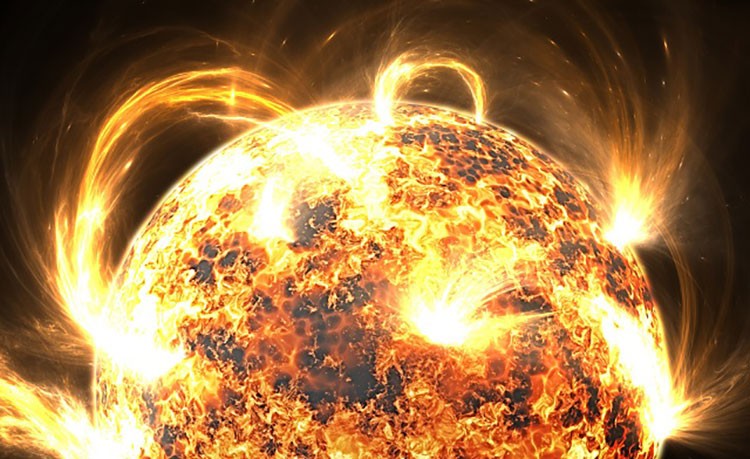
Regardless of their particular doomsday scenario(s), they’re living and breathing prepping day in and day out. They are stockpiling ammunition, building bunkers, learning bushcraft, stocking years upon years’ worth of food, and generally preparing to disengage from modern society at a moment’s notice. They devote their life – and their wallet – to all things prepping.
How Many Preppers Are There?
It’s difficult to measure how many preppers exist today for a few reasons:
- How are you defining prepper? Many people that take prepper-like measures do not identify as prepper.
- Preppers are known for being quiet about their preps. For preppers, this is self-evident, if everyone knows you’re a prepper, when the big event happens, they’re all coming to your house.
Still, based on the market that has been built up to supply preppers with everything from freeze dried foods to water storage barrels to bug out bags and everything in-between, it’s safe to say the number of people taking some type of steps toward prepping is nothing short of gigantic.
So, What is a Prepper?
As you can see, there’s no one definition for all scenarios and all people. But it should suffice to say that if you’re here following this site, if you subscribe to our emails, if you follow similar sites, and – this is the key – you take measures to prepare for future uncertainties, you’re a prepper of some type.
What’s YOUR definition of prepper? Let me know in the comments section below.

3 comments
im “old Navy” when your going on a cruise the ship was packed with food.& supplies.when i left the Navy hated city life. I bought a remote piece of land 20 miles from any Food stores. i bought cases of this & that. Lots of TP. now i have no need to go shopping once or twice a week for a “few items” like my nearest Neighbors did. I’m just prepared for winter, my driveway was 850 ft down hill to the house. snow & ice -NO you are Not getting out. to go get $10.oo bucks worth of food. “Yes I’m a Prepper and so glad i am. added a couple solar panels to Charge batterys. “Power off” not a problem, i don’t keep a lot frozen foods, Cook on the grill on the porch. 12 volt LED’d & a 12 volt TV, bought a 12-24 volt Well pump, dropped it in the well @ 75 ft plummed a spigot use a washing machine hose to Grid well pump. in emergency i still have “some water”.just close valve to grid well. “YEP” glad to be a prepper,
keebler
I’m an old, disabled Vietnam Vet. Seems like I have always been a “prepper”, but I just call it common sense. I always carry some equipment, etc., in the back of my GMC. Stuff to help me get home if we get an EMP, or something similar.
And at home, I have food for perhaps 10-12 years – all in “25 year” packings. I even include food for my Service Dog. The gas lines in the 1970’s, the great toilet paper grab – all see people panicking. I am NOT going to be one.
thanks for your service,glad your pretty well set up. thanks for the comment.
keebler.